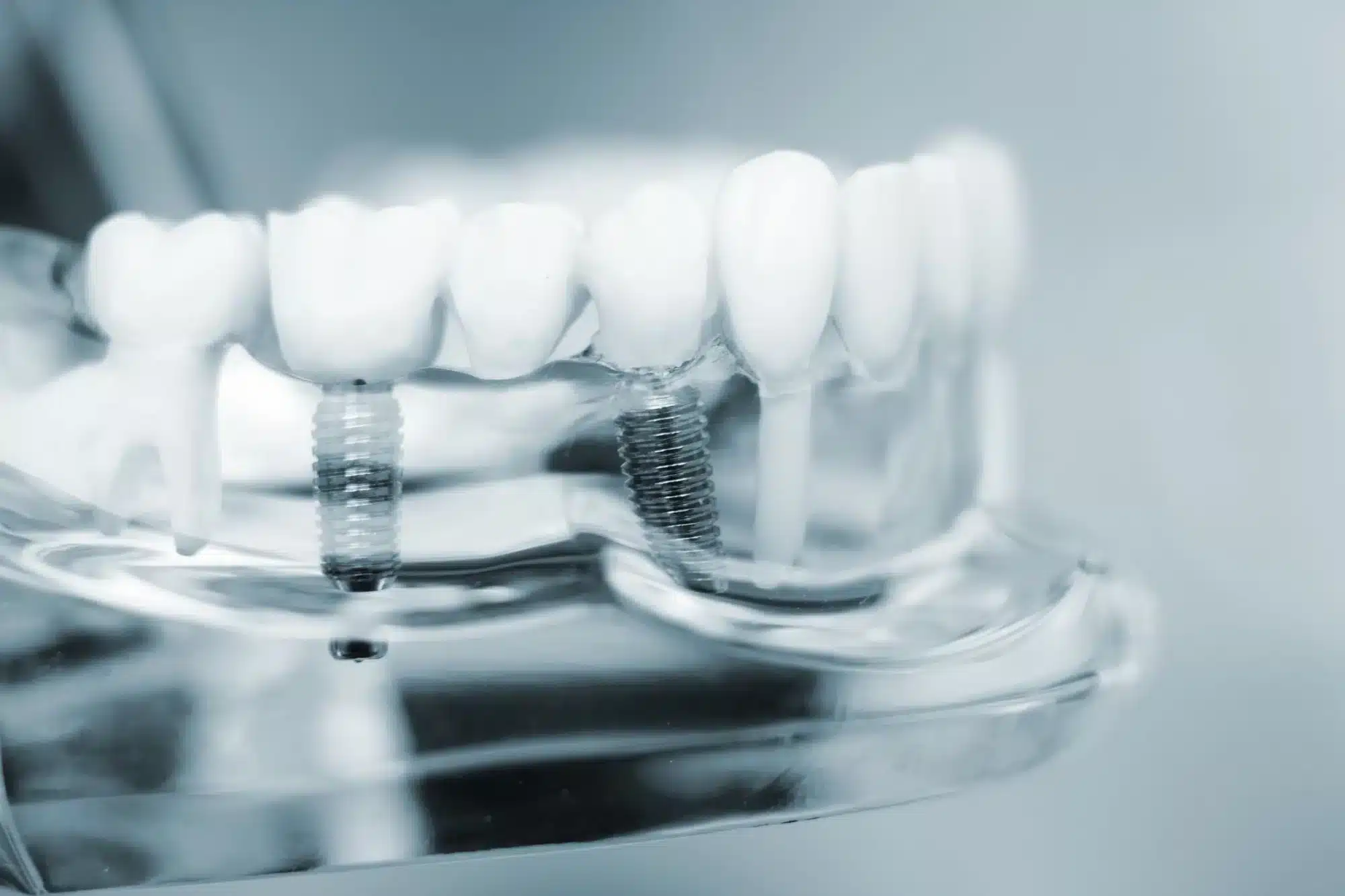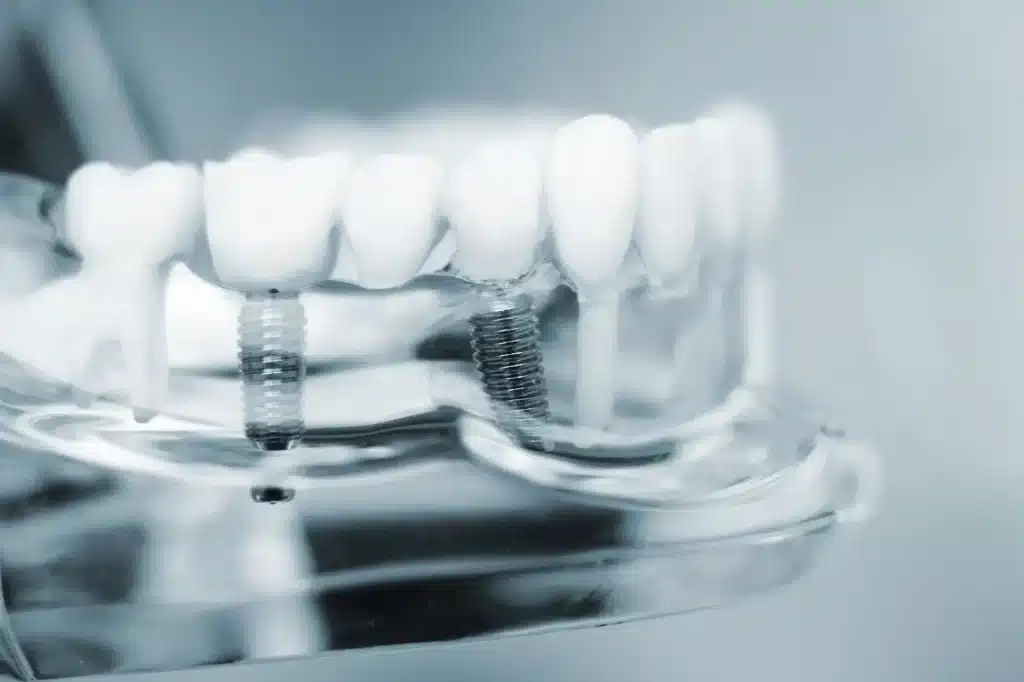In the US, 26% of adults over 65 have 8 or fewer natural teeth. Sadly, severe tooth loss can prevent individuals from eating a healthy diet. That’s because many nutrient-packed foods require a good bit of chewing.
Thankfully, you can fix a missing tooth with the help of a dentist. Most often, dentists recommend implants, which provide a stable and long-lasting tooth replacement. Not only do implants restore a person’s ability to chew any food they desire, but they also look and feel natural.
If you’re considering this procedure, you no doubt want to know about the longevity of dental implants. So, how long do dental implants last?
For more important information about getting dental implants that will help you decide if they are right for you, keep reading to find out more!
Understanding Dental Implants
The dental implant procedure isn’t a complicated one, but it does require surgery. The reason is that dental implants mimic the natural structure of teeth. The implant replaces the tooth roots, meaning it goes into the jaw.
Placing the implant in the jaw makes the false tooth sturdy, much like a natural tooth. The implant is also very durable because of the material, which is usually titanium.
Once the area heals, the implant fuses to the bone in a process called osseointegration. This creates a strong foundation for a replacement tooth. It will not slip or shift even when chewing sticky or crunchy foods.
An abutment goes on top of the implant post and connects it to the replacement tooth. This may be a crown, bridge, or denture, depending on the number of missing teeth.
Alternative Tooth Replacement Options
Dental implants are not the only solution for missing teeth. However, they are the most stable and long-term option. Here are some alternative treatments.
Dentures
Dentures are false teeth. Wearers can remove them and they are of acrylic or metal materials. Some dentures replace the entire set of teeth, while others are partials.
Dentures rest on the gums, meaning that they are not stable. Additionally, they don’t offer any protection against bone loss. Yet, they tend to be a cost-effective solution when a person is missing many teeth.
Bridges
A dental bridge is used when a person is missing several teeth. The false teeth are all connected and usually anchor to nearby remaining teeth.
In some cases, a patient may choose a resin-bonded bridge, which replaces just one tooth. In this case, the bridge fastens to neighboring teeth.
Bridges are more stable than dentures. But, the procedure may call for adjustments to the healthy teeth that anchor the bridge.
Benefits of Dental Implants
Although dentures and bridges can replace teeth without the need for implants, the benefits do not compare. Since neither has a sturdy anchor to hold them in place, they are not as natural as an implant. They may move around in the mouth or even slip when chewing.
On the other hand, dental implants offer numerous benefits. Consider some of the reasons they are the preferred tooth replacement option.
Enhanced Oral Function
Dental implants feel like natural teeth. Over time, you won’t even notice a difference between your natural teeth and your implant. They are comfortable and efficient for chewing, speaking, and biting.
Aesthetically Pleasing
Dental professionals custom-make implants to blend in with your existing teeth. That means they’ll be just the right shape, size, and color to restore your smile. It’s unlikely that anyone would be able to tell the difference, even if they tried!
Long-lasting Solution
When properly cared for, dental implants last decades. That makes them a cost-effective option compared to dentures or bridges that may need replacement over time.
Bone Preservation
Bone loss is a serious problem for those who have missing teeth. It can cause your facial structure to change, creating premature aging. Moreover, bone loss can make it difficult to chew, even with dentures.
Thankfully, implants stimulate the jawbone through osseointegration. This prevents bone loss and preserves the facial structure and strength of the jaw.
Easy Maintenance
Dental implants are easy to care for. Like natural teeth, all they need is regular brushing, flossing, and dental check-ups. There is no need for special adhesives or cleaning procedures.
Versatility
Dental implants can replace single or many missing teeth. With all-on-4 or all-on-6 implants, there are options for most patients.
Types of Dental Implants
There are several types of dental implants. The most common types of implants today are endosteal and subperiosteal. Let’s take a look at each of these.
Endosteal Implants
These are the most common type of dental implants used today. They consist of a small titanium post that acts as the tooth roots. Usually, the design is screw-shaped or cylindrical to maximize stability.
The reason for using titanium is that it is biocompatible, meaning it is safe for your body. It’s also able to fuse with the bone in osseointegration.
Endosteal implants are suitable for most patients. If they are missing several teeth, endosteal implants can support dentures or bridges, making them more stable.
Before an endosteal implant procedure, dentists check the patient’s oral health and bone density. This ensures they are a good candidate for this long-lasting tooth replacement.
Subperiosteal Implants
Sometimes a patient has insufficient jawbone density for an endosteal implant. This may be caused by long-term tooth loss, trauma, or oral conditions. In these cases, they may be able to receive a subperiosteal implant instead.
That’s because, unlike endosteal implants, subperiosteal implants are not placed into the jawbone. Rather, they rest on the jawbone, but still under the gum tissue.
Subperiosteal implants have a metal frame customized to fit the patient’s jawbone. It consists of posts that extend above the gum line to support the prosthetic tooth or teeth.
Additionally, some patients prefer subperiosteal implants due to their less invasive nature.
Zygomatic Implants
These specialized implants are less common. They can be used when patients have severe bone loss in the upper jaw. Instead of anchoring to the jawbone, zygomatic implants attach to the cheekbone.
Mini Dental Implants
Mini dental implants are smaller in diameter than standard implants. They stabilize lower dentures or replace teeth in narrow spaces.
Mini implants require less invasive placement procedures. As a result, they are a suitable option for patients with limited bone density.
All-on-4 and All-on-6 Implants
All-on-4 and all-on-6 implants are techniques for full-arch tooth replacement. All-on-4 uses four strategically placed implants to support an entire arch of teeth. Meanwhile, all-on-6 uses six implants for added stability and support.
These procedures eliminate the need for individual implants for each missing tooth. Thus, they are beneficial for patients with many missing teeth. They can also be used for those seeking full-mouth restoration.
The Dental Implant Procedure
The dental implant process begins with an initial consultation and oral exam. The dentist or oral surgeon will assess the condition of the patient’s gums, jawbone, and teeth. They will also consider the patient’s medical history.
Next, the dentist will create a detailed treatment plan. Diagnostic imaging techniques such as X-rays and CT scans are essential at this stage. These images provide a 3D view of the jawbone, allowing the dentist to check its density.
After reviewing this information, the dentist can create a customized treatment plan. This plan outlines the:
- Number and location of dental implants required
- The type of restoration (crown, bridge, or denture)
- Any necessary preparatory procedures like bone grafting or tooth extraction
At this point, the patient and doctor can discuss the procedure. The patient also receives post-op instructions and an appointment for the surgery.
Dental implant surgery typically involves several stages. After administering anesthesia, an incision is made in the gum tissue to expose the jawbone.
Then, a small hole is drilled into the bone for the implant. The titanium implant post is inserted into the prepared site, and the gum is sutured closed.
In some cases, dentists place temporary restorations like crowns or bridges. These temporary restorations allow patients to have functional teeth during the healing period.
Once healing is complete, the dentist will expose the implant by making a small incision in the gum. An abutment is then attached to the implant. This piece supports the final dental restoration.
The final step in the dental implant procedure is the placement of the dental restoration. This gives the implant the full function and completes the procedure.
How Long Do Dental Implants Last?
Dental implants provide patients with long-lasting tooth replacement. If you’re considering an implant, you likely want an estimation of how long your implant will actually last.
Unfortunately, it’s hard to put an exact number on the lifespan of dental implants. Many factors influence how long they last, which can vary from person to person. However, there are several things you can do to prolong your dental implant.
Factors Influencing the Lifespan of Dental Implants
Maintaining excellent oral hygiene is crucial for the longevity of dental implants. Proper hygiene includes:
- Regular and thorough brushing
- Daily flossing
- Using an antimicrobial mouthwash
These habits help prevent the buildup of plaque and bacteria around the implant area. This lessens the risk of peri-implantitis, an inflammatory condition that can lead to implant failure.
Lifestyle Habits
Certain lifestyle habits can impact the health and durability of dental implants. For example, smoking and excessive alcohol consumption have a link to an increased risk of implant failure.
Smoking can also impede the healing process and compromise the implant’s integration with the jawbone. This makes it essential for patients to quit smoking before undergoing implant surgery.
General Health and Medical Conditions
Patients’ health and medical conditions can also influence the success of dental implants. Uncontrolled diabetes, autoimmune diseases, and certain medications may hinder proper healing and osseointegration. Thus, it is crucial for patients to let their dentist know about any medical conditions they have.
Success Rates and Studies on Dental Implant Longevity
Extensive research and studies have assessed the success rates of dental implants, which is up to 97%. These high success rates show the reliability and efficacy of dental implants as a tooth replacement option.
Furthermore, several studies have followed up on patients with dental implants after 10 to 30 years. The majority of patients maintained a healthy implant, and in most cases, fewer than 18% had reported implant loss. They also experienced minimal bone level changes.
It’s important to note that advancements in implant technology will only continue to improve outcomes. So, we can expect future studies to reveal the improved longevity of implants.
Tips for Prolonging the Life of Dental Implants
Routine dental check-ups are essential for monitoring the health of dental implants. Dentists can:
- Assess the stability of implants
- Check for signs of inflammation or infection
- Provide professional cleanings to remove plaque and tartar buildup around the implants
If there are any issues, getting the right care early on can save your dental implant.
Avoiding Harmful Habits
Patients should avoid habits that can jeopardize the integrity of dental implants. Smoking, as mentioned earlier, is one of the most detrimental habits, as it inhibits proper healing and integration of the implant.
Additionally, avoid opening bottles with your teeth or chewing on hard objects. This can help prevent implant-related complications.
Healthy Dietary Practices
Maintaining a nutritious diet promotes oral health and supports dental implants. Foods rich in vitamins and minerals, such as calcium and vitamin D, can help maintain strong jawbone density. This ensures the stability of the implants.
Dental Implants: A Long-Lasting Tooth Replacement Option
The dental implant procedure is an ideal solution for tooth replacement. But how long do dental implants last? The answer largely depends on the patient!
After reading all about dental implants, you no doubt want to know if you are an ideal candidate. The best way to find out is by talking to a trained professional in your area. If you live in or near Colorado Springs, we invite you to schedule a visit with Pinnacle Dentistry!



